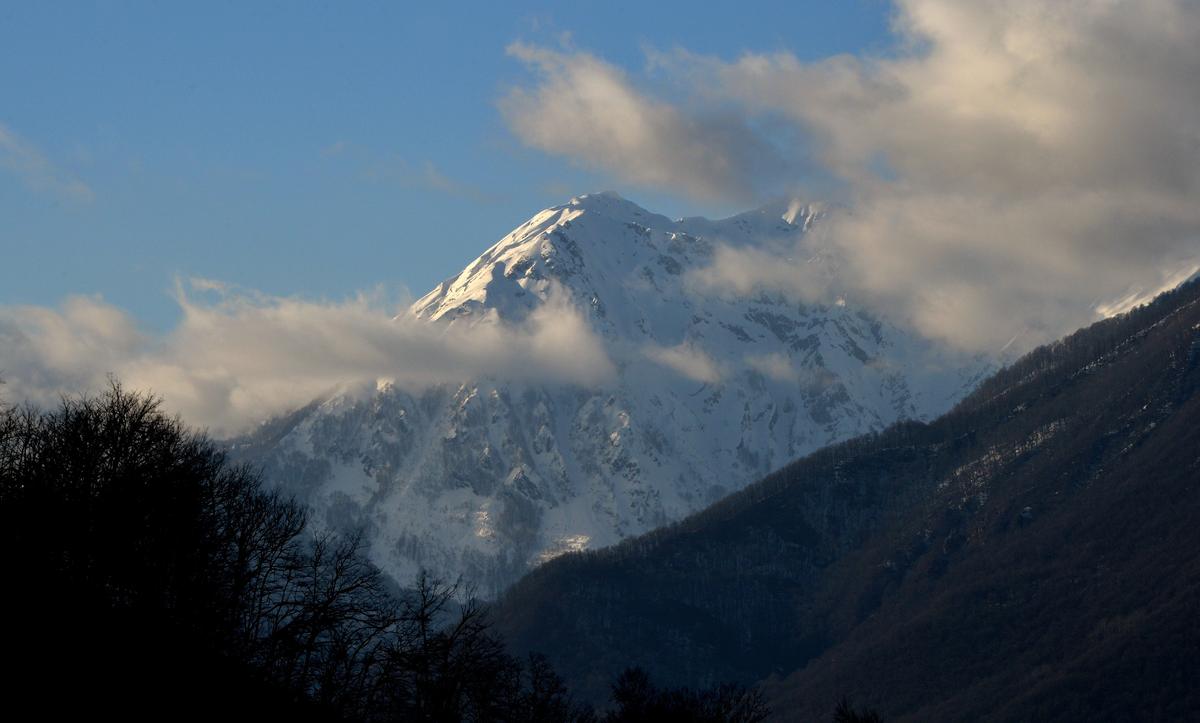
The Aigba Ridge in southern Russia's Krasnodar region, 4 February 2014. Photo: EPA/JUSTIN LANE
Greenpeace International published a report on Monday detailing the destructive impact of the ongoing invasion of Ukraine on Russia’s climate policy and its implications for the world.
The report, which is over 100 pages long, draws on “hundreds of sources” both within the country and abroad, showing that the Russian regime is based on a troika of extractivism — an economic system based on the wide-scale extraction of fossil fuels with little to no added value — authoritarianism and war, destroying the country’s biodiversity, environment and international relations.
According to the report, one of the most striking transformations has been the dramatic increase in military expenditure, which now accounts for up to 40% of the federal budget, to the detriment of civilian sectors including the environment and sustainable development. One such programme, the Clean Air Federal Project, which aims to reduce air pollution in industrial cities, was slated for a nearly 50% budget cut in 2025, the report said.
Meanwhile, due to its sheer size and biodiversity — including its vast boreal forests, permafrost and wetlands — Russia remains crucial to global environmental sustainability, the report’s authors stressed. However, its focus on extractivism and war is expected to have “profound” consequences for the rest of the world, with Russia’s near-surface permafrost area expected to shrink by 22–28% by 2050 and by 40–72% by 2100, compared to the period 1995–2014.
“Russia’s experience should serve as a stark and unequivocal warning to all countries that rely on the extraction of natural resources, authoritarian rule and militarisation — and to those countries that finance such regimes and trade with them, paying no regard to the consequences,” the report said.
Greenpeace Russia was forcibly closed in 2023 after it was declared an “undesirable organisation” by the Russian authorities as part of the Kremlin’s crackdown on civil society.
However, despite Russia’s increasing isolation from the rest of the world, researchers and activists are still attempting to preserve Russia’s flora and fauna and raise awareness about its destructive climate policies. “Some do so from inside the country, adapting to its new reality; others have brought their work with them into exile,” the report says.
The report also noted that environmental issues remain one of the few topics that continue to trigger protest in Russia the brutal crackdown on anti-Kremlin voices notwithstanding, one such example being the protests in Bashkortostan in January 2024 following the arrest of Fail Alsynov, a prominent activist who was sentenced to four years in prison for his speech at a protest opposing the construction of a gold mine.
While Russia continues to have “unique potential” for sustainable development, a fundamental transformation of its development model is necessary to serve the wellbeing of people around the world, the report concludes — including an end to the war in Ukraine, the restoration of civil society, and a transition away from relying on fossil fuels towards sustainable development.
